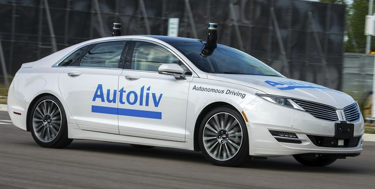Autoliv, Inc. and the Massachusetts Institute of Technology (MIT) AgeLab announced a two-year long research collaboration to develop artificial intelligence (AI) technology for autonomous vehicles.
The two organizations intend to develop a semi-autonomous vehicle prototype that will demonstrate human-centered AI systems that can understand and manage the state of the driver. The objective for these deep learning algorithms is to enable effective communication and transfer of control between humans and the car. The algorithms will incorporate driver gaze, emotion, cognitive load, drowsiness, hand position and posture, combining this information with the perception of the driving environment to create safe, reliable vehicles that drivers learn to trust.
The research collaboration will evaluate the AI systems in the “real world” and will likely feed the development of software from Zenuity, the software joint venture of Autoliv and Volvo Cars. Autoliv is focused on developing passive and active systems to improve automotive safety.
Ola Boström, the VP responsible for research at Autoliv, said “1.4 million people die in traffic fatalities every year. Investments in vehicle automation such as advanced driver assistance systems (ADAS) will increase road safety, but the introduction of assistance technology is not enough. To save more lives, we need to establish trust between the driver and the car's intelligence.”
MIT’s Bryan Reimer added, “It is clear that the global focus on autonomous vehicles must begin to consider increased investment in human centered vehicle systems that support appropriate driver engagement through trusted safety and an enjoyable mobility experience.”

